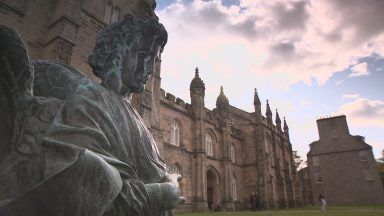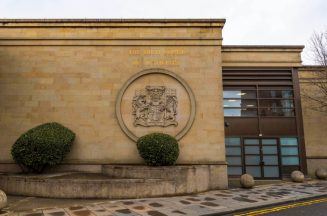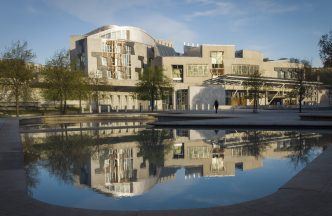Police Scotland will not record “non-crime hate incidents” against Humza Yousaf or JK Rowling after they were reported to the force over claims they committed hate crimes.
Officers received hate crime allegations against the First Minister and the Harry Potter author following Holyrood’s new hate crime legislation.
Social media posts by Rowling describing transgender women as men and criticising the Scottish Government were determined not to be criminal.
Rowling insisted that the “legislation is wide open to abuse by activists who wish to silence those of us speaking out about the dangers of eliminating women’s and girls’ single-sex spaces”.
She argued: “It is impossible to accurately describe or tackle the reality of violence and sexual violence committed against women and girls, or address the current assault on women’s and girls’ rights, unless we are allowed to call a man a man.”
Responding to the announcement that police would not arrest her, Rowling said: “I hope every woman in Scotland who wishes to speak up for the reality and importance of biological sex will be reassured by this announcement, and I trust that all women – irrespective of profile or financial means – will be treated equally under the law.”

Comments made by the First Minister at Holyrood four years ago on diversity were deemed not to be criminal.
Yousaf – who was not FM at the time – pointed out the lack of non-white people in the top jobs across Scotland.
There were questions over whether the statements from Yousaf and Rowling would be logged as a “hate incident”.
Non-crime hate incidents (NCHI) are recorded by police when they conclude that the threshold for criminality has not been met.
A Police Scotland spokesperson released an identical statement on whether Yousaf or Rowling had a hate incident recorded against them.
It said: “The circumstances have been assessed and will not be recorded as a Non-Crime Hate Incident.”
According to the Police Scotland’s hate crime national guidance (HCNG), a hate incident is “any incident which is perceived by the victim or any other person, to be motivated (wholly or partly) by malice and ill-will towards a social group but which does not constitute a criminal offence (non-crime incident)”.
Critics take issue with the policy revolving around a complainer’s perception of hate, rather than whether a law has been broken.
Conservative MSP Murdo Fraser threatened Police Scotland with legal action after he found out a hate incident had been lodged against him.
He had compared identifying as non-binary to identifying as a cat in a social media post criticising a Scottish Government plan on equality.
On Wednesday, he encouraged officers to log an NCHI against Yousaf. He said the decision not to “reeks of political bias”.
He said: “This decision means Police Scotland have not only breached their own policy on recording non-crime hate incidents, but now appear to be making it up as they go along.
“They have taken a different approach to comments made by the SNP First Minister to those made by an opposition politician.
“This reeks of political bias.
“It is hard not to conclude that Police Scotland has been captured by the SNP policy agenda.
“I expect the Chief Constable to contact me urgently with an immediate apology for recording a hate incident against me and confirming all records in relation to it have been destroyed.
“They should also ditch their existing unlawful policy – as has been done in England and Wales – which I believe is a clear breach of people’s human rights.”
Joanna Cherry, an SNP MP who is against the Hate Crime Act, added: “It seems Police Scotland are revising their policy on recording non-crime hate incidents on the hoof in order to avoid the embarrassment of recording incidents against an internationally, renowned author and philanthropist and the First Minister of Scotland.
“This really isn’t good enough & calls into question the application of the policy to date. The policy should be applied equally to everyone.
“Police Scotland should wipe their existing database of non-crime hate incidents and carry out a proper review of their policy in line with the principle of equality before the law.”
A spokesperson for Police Scotland said victim recording was important to “monitor tensions within communities” and that hate incidents were not logged against perpetrators.
The First Minister told STV News he supported police recording non-crime hate incidents.
“It’s important that they are recorded because what it does is it gives police an idea of where there might be spikes in hatred,” he said.
Media reports suggested Police Scotland had issued a review of the policy but the force has disputed this.
It comes after STV News understands that 3,800 alleged hate crimes had been reported to police since new hate crime legislation came into force on Monday.
The Hate Crime and Public Order Act essentially takes the current law against the stirring up of racial hatred and extends that protection to other groups.
Those protected characteristics are disability, religion, sexual orientation, age, transgender identity and variations in sex characteristics.
Under the new law to be found guilty of a hate crime, two tests must be met.
- A person must engage in behaviour or communication that is perceived by a reasonable person to be threatening or abusive on the grounds of disability, religion, sexual orientation, age, transgender identity or variations in sex characteristics.
- A person must intend to stir up hatred on the basis of these protected characteristics.
Follow STV News on WhatsApp
Scan the QR code on your mobile device for all the latest news from around the country






























